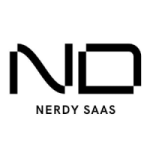As technology continues to evolve, it is crucial for businesses of all sizes to keep up with the latest trends in digital marketing. One of the most important aspects of digital marketing is having a user-friendly and effective website. This is where a content management system (CMS) comes in handy. A CMS allows you to manage and publish your website’s content without the need for extensive technical knowledge.
There are many content management systems available in the market, but not all of them are suitable for small businesses. In this article, we’ll take a look at the top 10 best content management systems for small businesses in 2023.
Criteria for selecting a Content Management System (CMS) for Small Businesses
Before diving into the top 10 best CMS for small businesses, it’s important to understand the criteria for selecting a CMS. Here are some factors to consider when choosing a CMS for your small business:
User-Friendliness:
Small business owners usually don’t have the time or resources to learn complex CMS systems. Therefore, a CMS that is easy to use and navigate is essential.
Customization:
Every small business has unique needs and requirements. A CMS that allows for customization and flexibility can help to cater to specific business needs.
Security:
Cybersecurity is an increasingly important issue in the digital age. Therefore, it is important to choose a CMS that has robust security features.
Pricing:
Small businesses operate on a tight budget, and the cost of a CMS is a significant factor to consider. Therefore, it’s important to choose a CMS that offers value for money.
Top 10 Best Content Management Systems for Small Businesses in 2023
Now, let’s dive into the top 10 best content management systems for small businesses in 2023:
WordPress:
WordPress is unquestionably the most popular CMS for small businesses in today’s world. More than 40% of all websites on the internet are powered by WordPress, which is utilised by millions of people worldwide. Due to its simplicity of use and adaptability, it has grown significantly since its initial release in 2003 and is now a very well-liked CMS. Additionally, WordPress has security capabilities to guard your website from potential threats and is simple to upgrade so that you can always be using the newest security measures.
Wix:
An exceptionally known CMS tool Wix is being considered as the best CMS tool because of its drag-and-drop functionality. Small businesses, bloggers, and owners of online stores who want to build a website without knowing any code frequently choose Wix platform. To assist users in expanding their online presence, this CMS platform offers a variety of features, such as analytics, social media integrations, and SEO optimization tools. In general, Wix is a trustworthy and cost-effective option for anyone wishing to create a website.
Squarespace:
Squarespace is another aesthetically appealing CMS tool that is ideal for small businesses that value design. Without having any coding or design expertise, people, companies, and organizations may construct professional-looking websites using the website creation and hosting platform Squarespace. For building websites, this platform provides a number of theme customization and choices that may be used to create e-commerce sites, blogs, portfolios, and many more things.
Shopify:
Shopify is an e-commerce CMS tool that is ideal for small businesses that need an online store. It offers a range of features, including product management, inventory management, and payment gateways etc.. It is very easy to use and with some unique features that other CMS tools don’t have. In addition to the CMS, Shopify also provides built-in SEO features to help merchants optimize their content for search engines.
Hubspot:
The ideal choice for small businesses wanting a full-service marketing solution is the all-in-one CMS platform Hubspot. This CMS allows businesses to create a website that truly reflects their brand and unique needs. It provides a variety of services, such as analytics, social media management, and email marketing. In order to customize the entire buying journey, streamline marketing and sales alignment, and provide full closed-loop reporting, it blends website development with the strength of a CRM platform.
Joomla:
Joomla content management system (CMS) enables you to design reliable websites and online apps. It is a simple and efficient web server programme that requires a PHP-powered server and either MySQL or PostgreSQL to execute. Open source and free, Joomla! is distributed under the GNU General Public License, version 2 or later.
Drupal:
Website creation and management are made possible by the open-source content management system Drupal. It has a modular architecture that enables modification and is renowned for its flexibility, scalability, and security. Users can get assistance and information from the Drupal community. It is a strong and adaptable CMS for building intricate websites.
Ghost:
Ghost, a free and open-source content management system is made specifically for bloggers and online media. A distraction-free editor, effective performance, and a variety of content management capabilities, including user accounts, content tagging, and scheduling, are just a few of its distinctive characteristics. Ghost CMS has support for numerous languages, themes, and plugins and is highly flexible.
Weebly:
Weebly is a popular CMS due to its user-friendly interface and the ability to create professional-looking websites quickly. It is used by individuals and businesses of all sizes to create everything from simple landing pages to complex e-commerce websites. Weebly’s pricing plans vary depending on the user’s needs, with options for free, personal, and business plans available. Overall, Weebly is a solid option for those who want to create a website without extensive technical knowledge or experience.
Webflow:
The intuitive drag-and-drop interface that Webflow is recognised for makes it simple for users to construct intricate layouts and designs. Users can customize the fonts, colors, photos, and animations on their pages using it’s visual editor. Additionally, it provides an e-commerce platform that enables customers to easily build online storefronts as well as a CMS (Content Management System) that enables users to manage the content of their websites. With quick load times and HTTPS encryption, its hosting service is dependable and safe. In conclusion, Webflow is an effective tool for building contemporary, responsive, and aesthetically attractive websites.
Conclusion
Choosing the right CMS is vital to your business success. The above mentioned top 10 CMS for small businesses in 2023 are WordPress, Wix, Squarespace, Shopify, Hubspot, Joomla, Drupal, Ghost, Weebly, and Webflow. Consider your business needs to select the best CMS that is user-friendly, customizable, and secure. Your CMS choice will help you create a professional-looking website and grow your online presence.
It is essential to assess your small business’s specific needs and requirements when choosing a CMS. By doing so, you can select a CMS that aligns with your business objectives and helps to boost your online presence. Ultimately, choosing the right CMS can be a game-changer for your small business’s website in the digital age.




